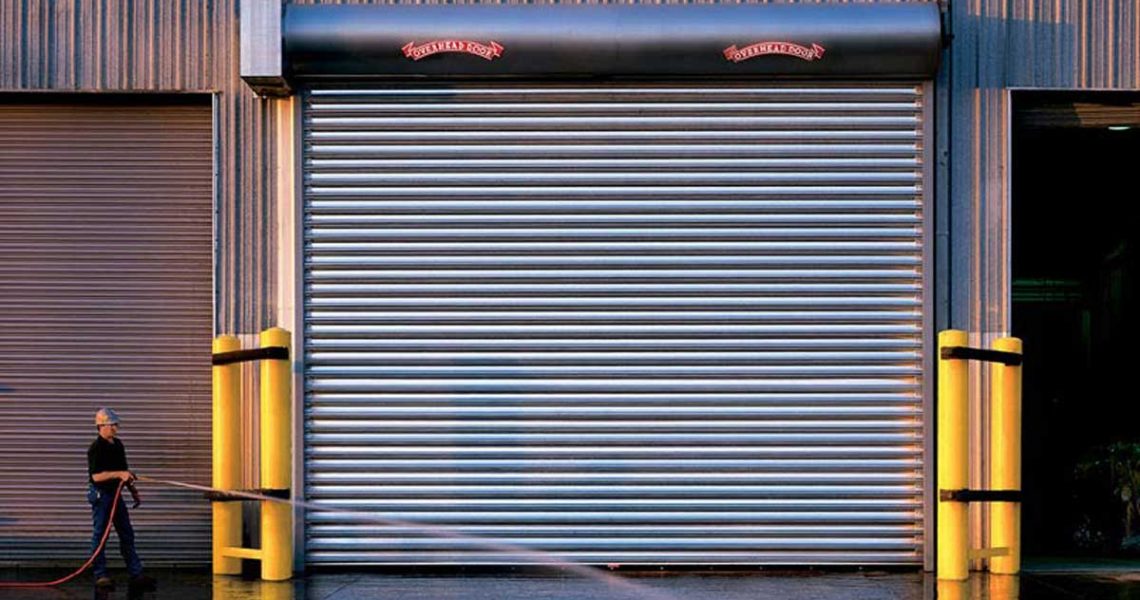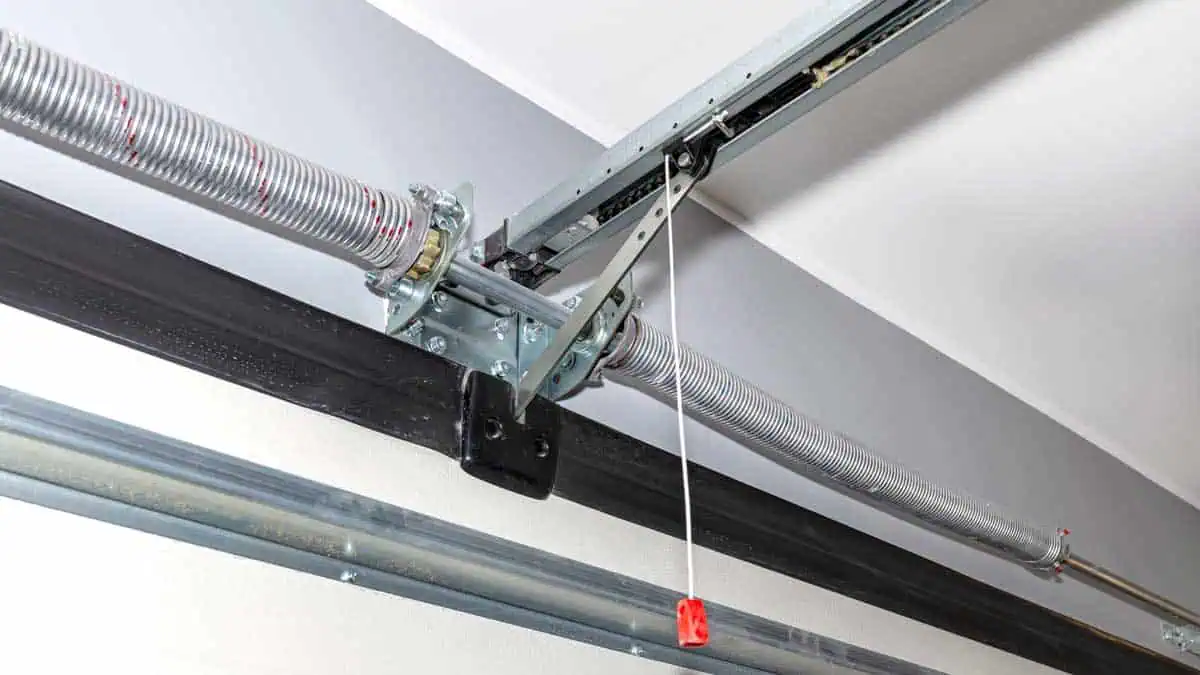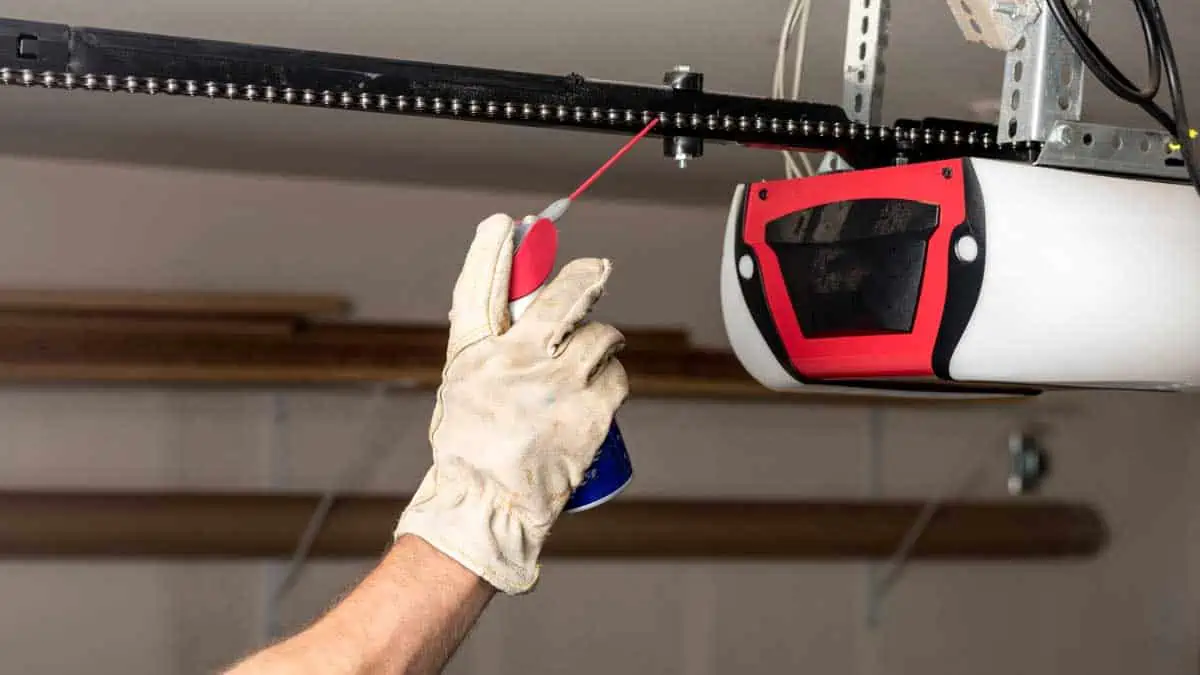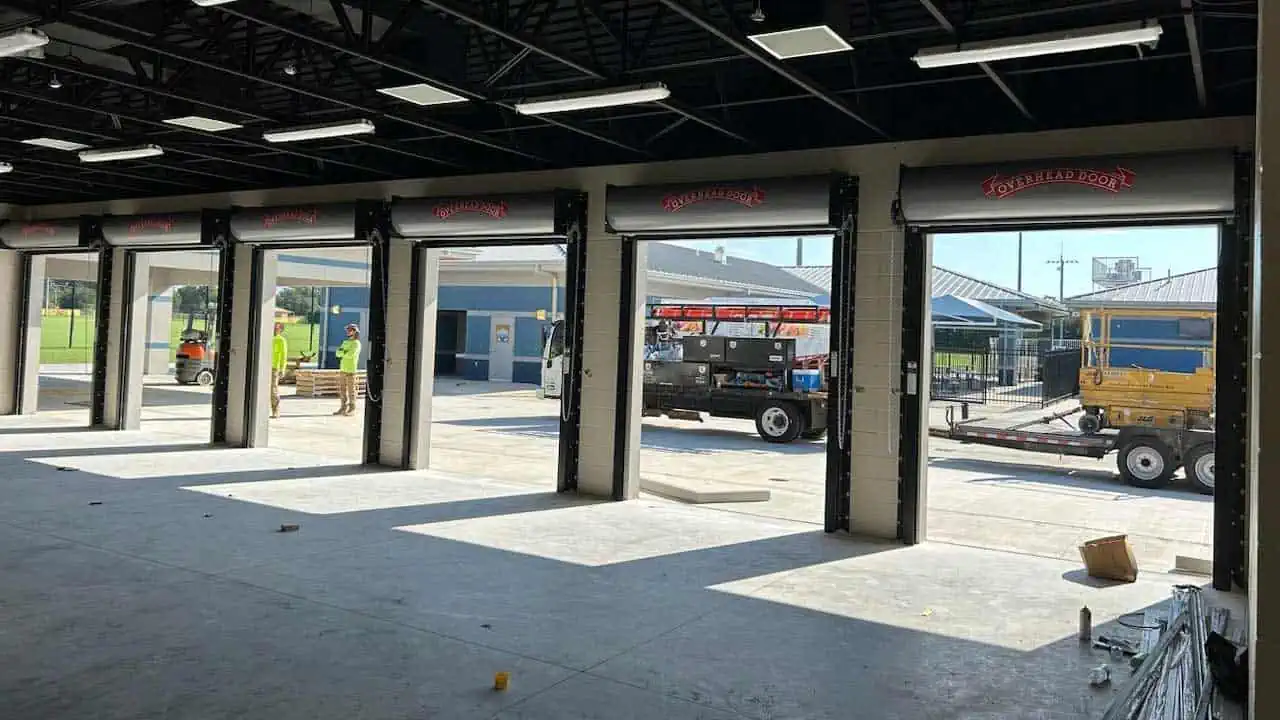When it comes to garage doors, you have many options to choose from. There are sectional doors, roll up doors, slide to the side, side hinged, tilt-up canopy, and tilt-up retractable style doors. The type you select will depend largely on the planned usage of your garage door, and the location of your garage. For residential use, sectional, side-hinged or one of the tilt-up doors are most common, and will usually suffice. However, they are not the best choice for other applications.
If your garage door will be used in a commercial or retail establishment, or in an area where security is a high priority, the rollup garage door is probably your best choice.
Roll Up Door Construction
Non-Roll Up doors are usually made of thin panels fabricated from steel, wood, or other lightweight materials that prevent casual entry, protect vehicles from the elements, or hide the contents of a storage area. The lightweight materials of these doors work fine for those applications, but for requirements beyond residential use, roll up doors are probably a better option.
Roll up doors, on the other hand, are made up of strong metal strips, arranged horizontally, which ride inside vertical tracks. When the door is open, the strips roll up onto a spool above the door opening. The design of the roll up door is much more durable than most other garage door types, creating a stronger door that will allow more open/close cycles than other door types.
Benefits of Roll Up Doors
Durability is not the only reason to consider a roll up door. Roll up doors, when in the open position, take up much less space than any of the other types of garage doors. Other doors typically cover the entire space parallel to, and a few feet below the ceiling. This presents two problems: first; the space above the raised door and below the ceiling won’t be available for easy storage, and second; lighting options are limited since any lighting installed above the location where the door is positioned when open, will no longer be useful.
Improved Safety
There are some concerns when deciding on garage door types in commercial applications.
Even the lightest garage doors are heavy enough to cause damage to materials, or worse yet injury or death to people. One common reason garage doors fall is spring failure. Another common cause of damage to a garage door is their vulnerability to moving vehicles such as forklifts. A roll up garage door’s parts, including springs, are enclosed, which means that they are less vulnerable to impact from moving vehicles. When you use a roll up garage door instead of a traditional overhead door, you’re minimizing the risk of damage to the door and vehicles, but more importantly, creating a safer environment for individuals in the area of the door.
Insulation Properties
Roll up garage doors are often insulated. They are sealed around the edges and are often made of a combination of metal and foam. Together, these design features help the door save on energy costs by separating areas of differing temperatures. The door’s insulation also provides a high quality sound barrier between two adjacent spaces.
Cost of Roll Up Doors
Although roll up doors are more expensive to purchase than other types of doors, in the long run, they pay for themselves through longevity and security. Roll up doors are designed to be more durable and can endure many more open/close cycles. Their durable construction also provides more protection from intrusion, saving on replacement costs of stolen materials and damage to the door itself.
Aluminum Grille Roll Up
A similar alternative to the roll up garage door, is the aluminum grille roll up. This option is great for retail situations where you want people to view the goods you have for sale inside your store, but you want to protect your inventory from theft. They are most often used in mall stores and storefronts on the street where all that stands between goods and possible burglars is a sheet of glass.
Appearance
There’s no getting around the fact that roll up doors have a more industrial look than your average sectional or flip-up style garage door. In fact, you probably won’t find many roll up doors on residential garages as you drive through most communities; however, there are times when you might find a roll up door in a residential application. For instance, in urban communities where buildings might be zoned as mixed-use, the first floor is often used for a small business while the upper floors are used for living space. These neighborhoods often have roll up doors on the first floor even when the entire building is used for residential purposes.
Ultimately, the decision on your garage door type comes down to the purpose and location of the overhead door. If the door will be used in a strictly residential, relatively safe scenario, a sectional door or one of the flip-up style doors may suffice. But if you have any of the unique needs we’ve discussed here, such as commercial or retail environments, areas where a high level of security is needed, or the sheer number of open/close cycles is high, you probably need a roll up style garage door.







